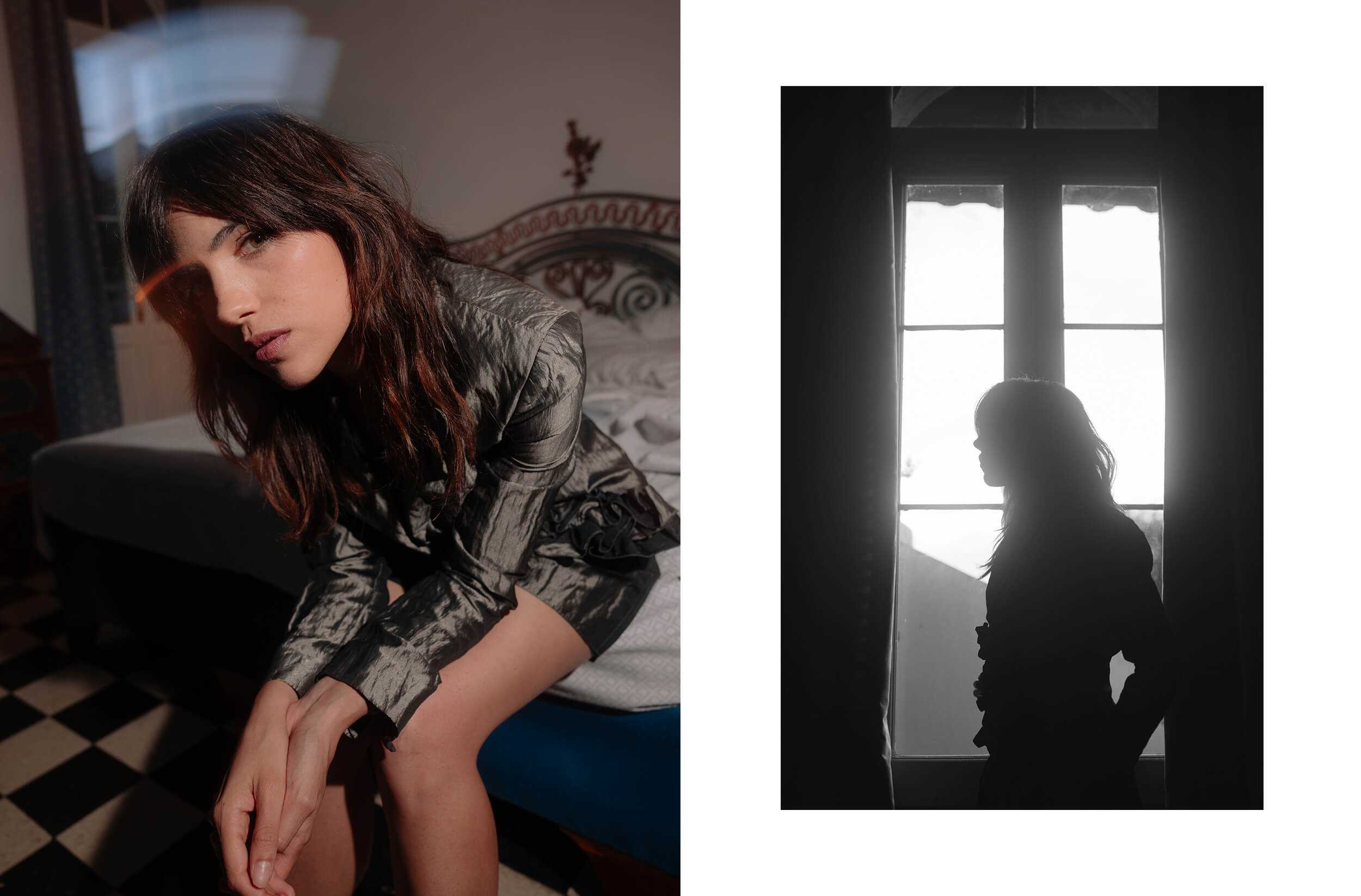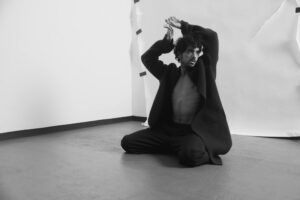Premiered at the Venice Film Festival, Ammazzare stanca by Daniele Vicari brings to the screen an intense and painful story rooted in 1970s Calabria, between the violence of the ’ndrangheta and the desire for individual freedom. Within this dark and realistic setting, Selene Caramazza plays Angela: a woman who resists, loves, and observes with silent clarity, becoming the bright counterpoint to a tale of guilt, redemption, and rebellion.
Talking about her character and the film, Selene opens a window into her way of inhabiting roles: with instinct, clarity, and delicacy, reflecting the image of an artist capable of mirroring the deepest emotions.
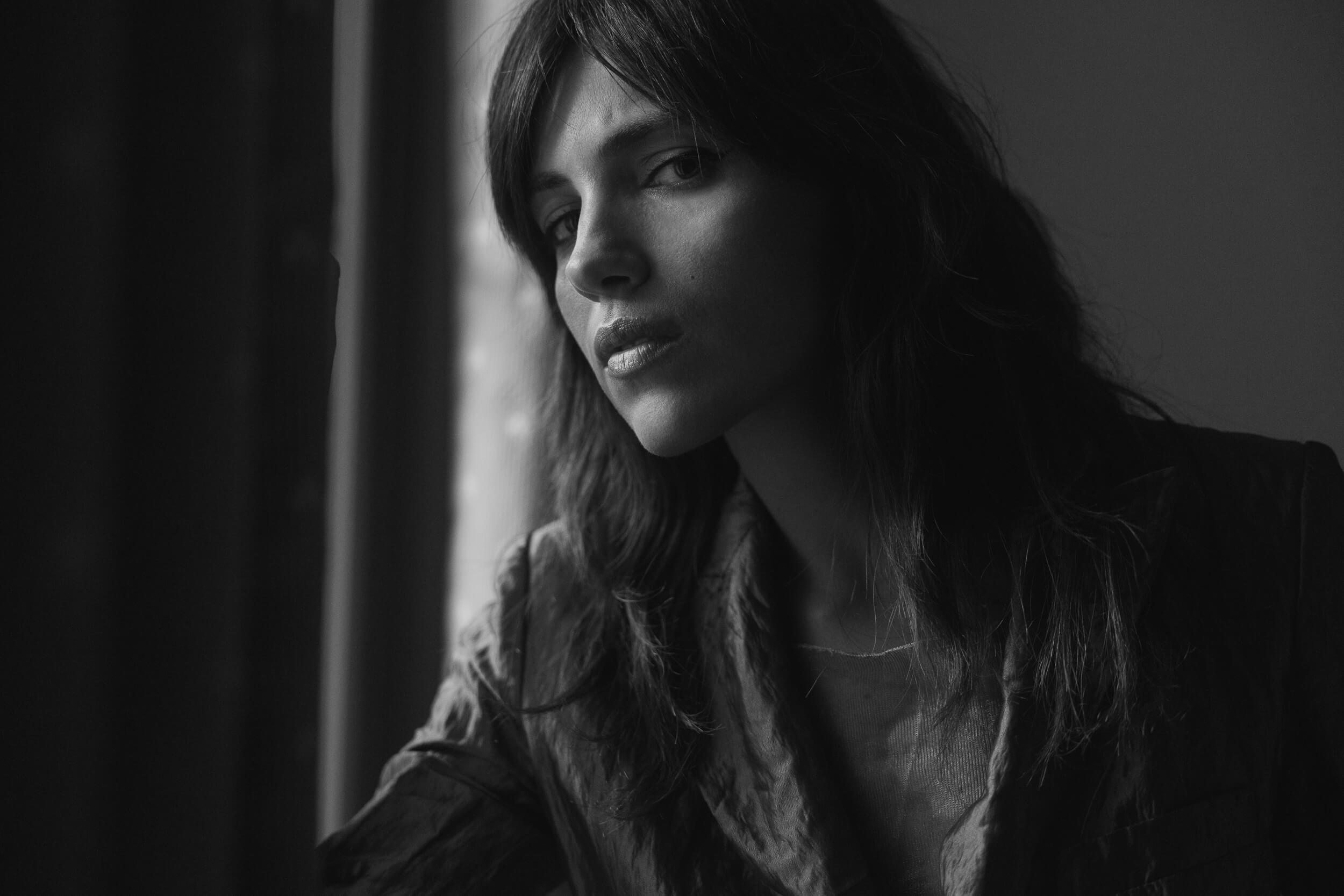
What is your first memory related to cinema?
My first memory of cinema was entering a dark theater as a child: I remember the sudden silence, the screen lighting up, and the impression that everything was bigger than me. That was when I understood that cinema has the power to take you elsewhere.
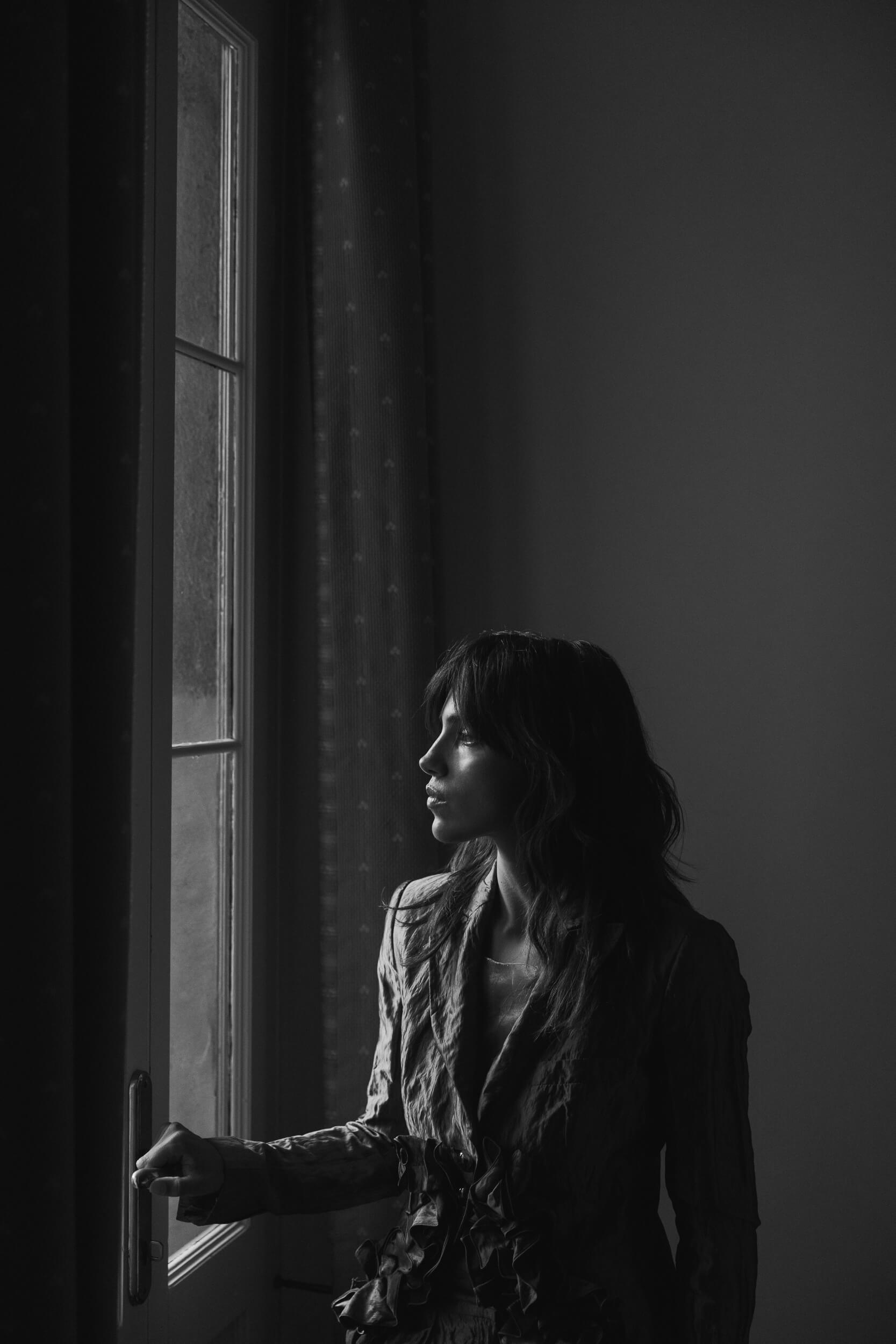
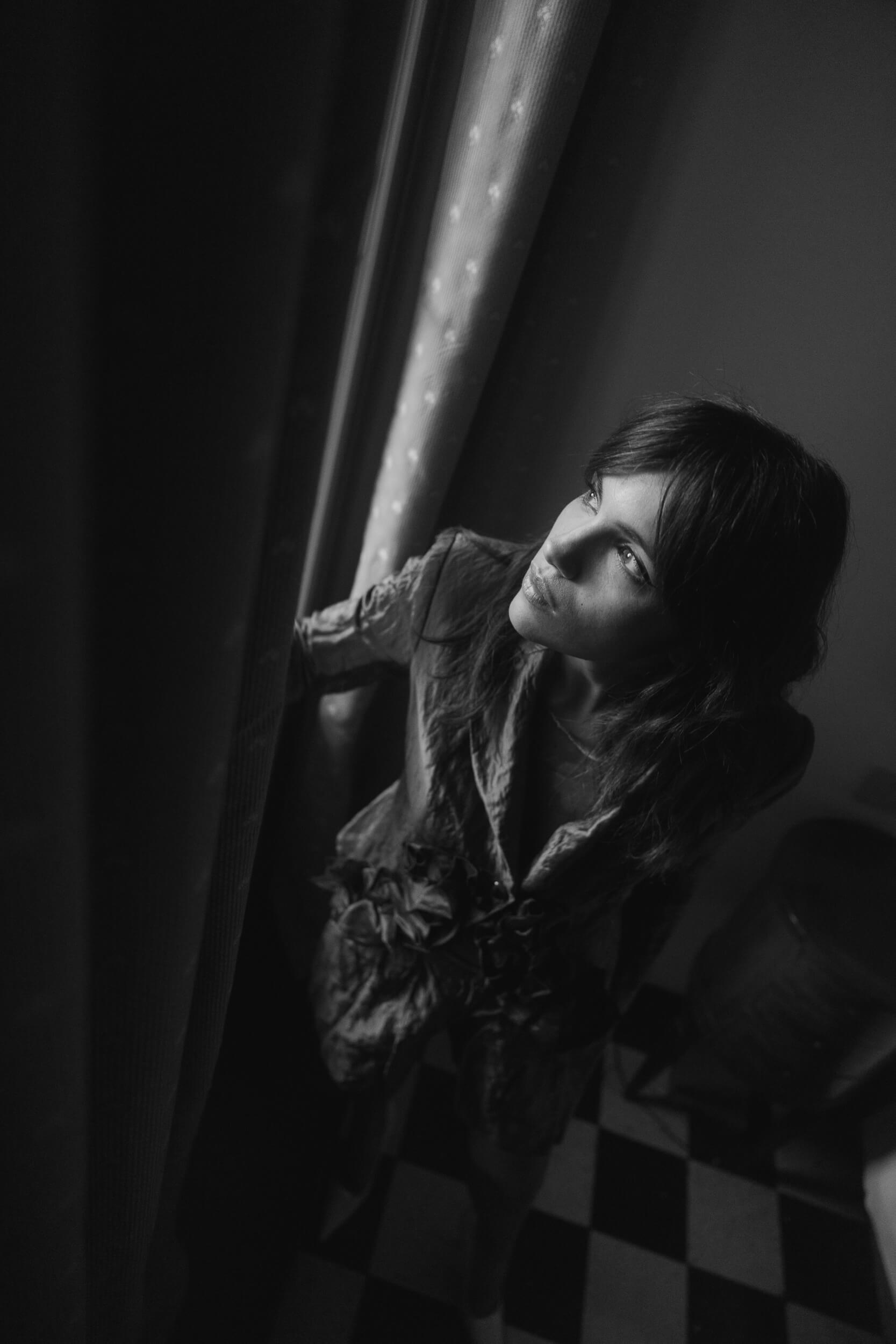
Your character in Ammazzare stanca, Angela, is not explicitly in the autobiography from which the film is adapted. What was your first impression when discovering her in the script, and what fascinated you about bringing her to the screen?
Angela struck me with her silent strength. She is a free and independent woman, ahead of her time: she acts, chooses, resists. In that mix of strength, fragility, and freedom, I found the challenge and the beauty of portraying her.
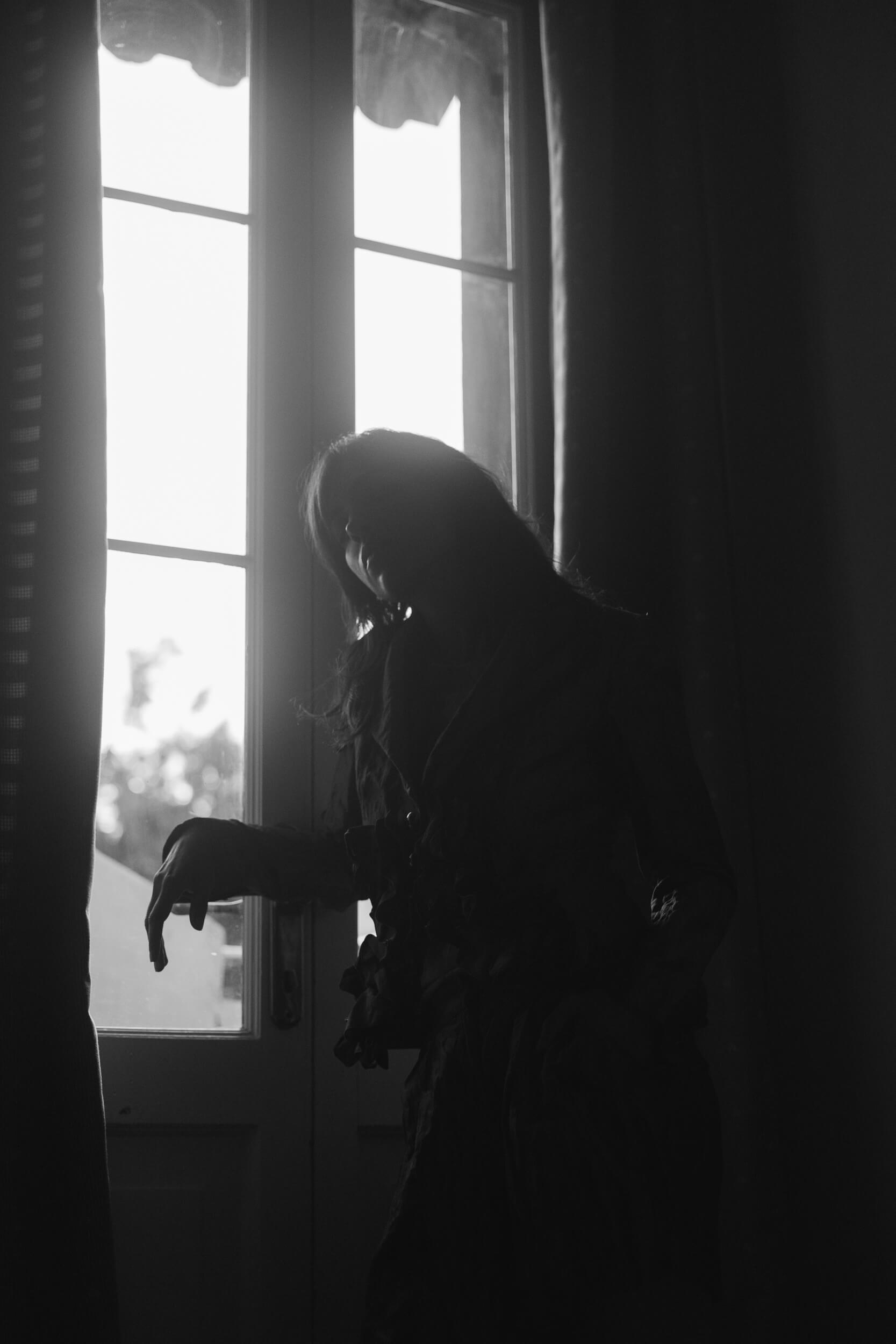
“she acts, chooses, resists“
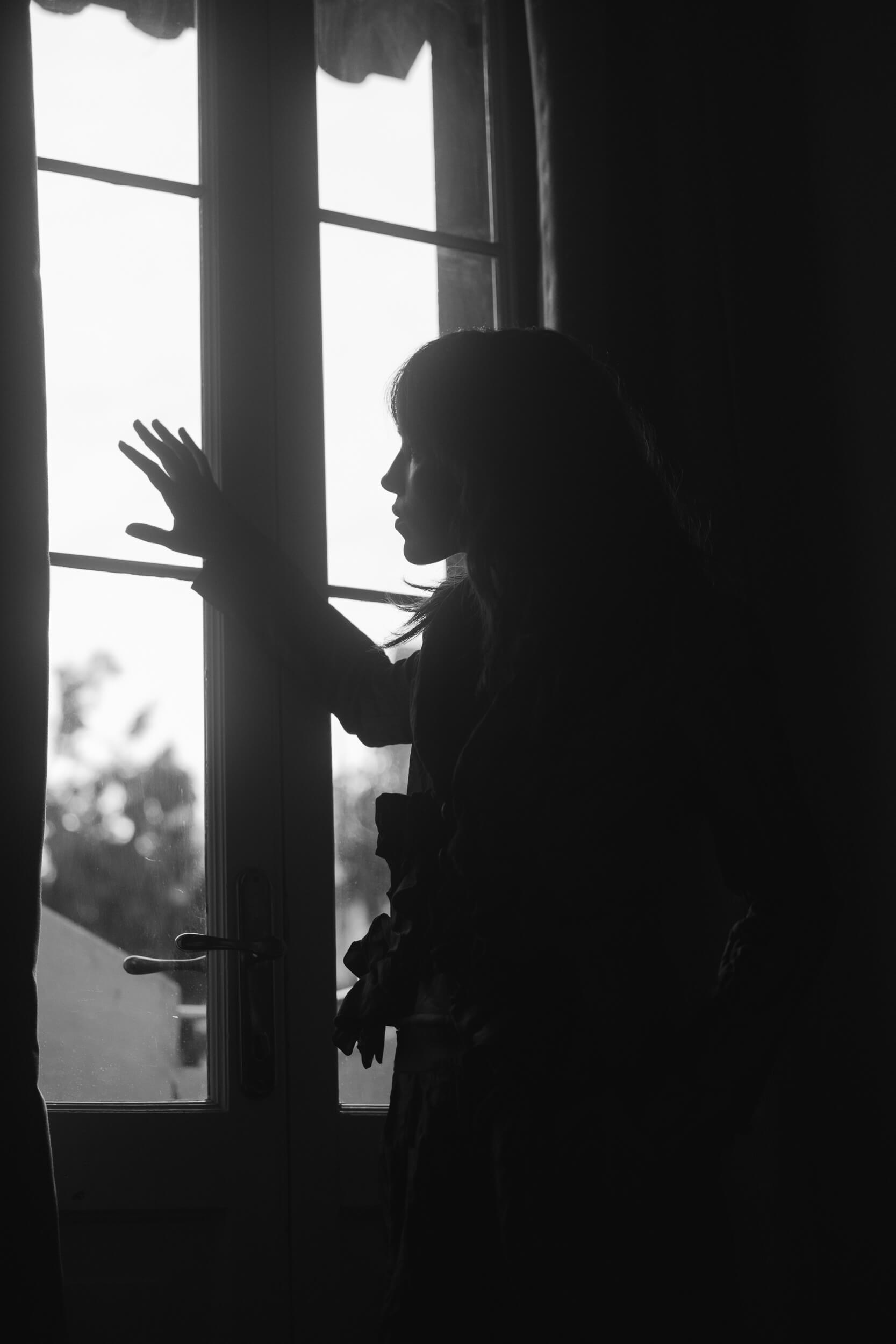
Ammazzare stanca tells the story of a man who, from perpetrator, becomes aware of the weight of his actions. Angela is Antonio’s partner and lives in this dark and tense world: how did you emotionally prepare to make that relationship believable within the violence surrounding them?
I looked for the gray area, where love blends with fear. That’s where Angela lives: in a feeling that cannot be explained but persists, even when everything else crumbles.
Their love story had to represent purity: it is the purest element of the film and carries a sense of hope. For this reason, I worked setting aside logic and rationality, letting myself be guided by instinct, by that almost animal sense of protection that drives Angela to care for Antonio and experience this love, despite the context they are in.
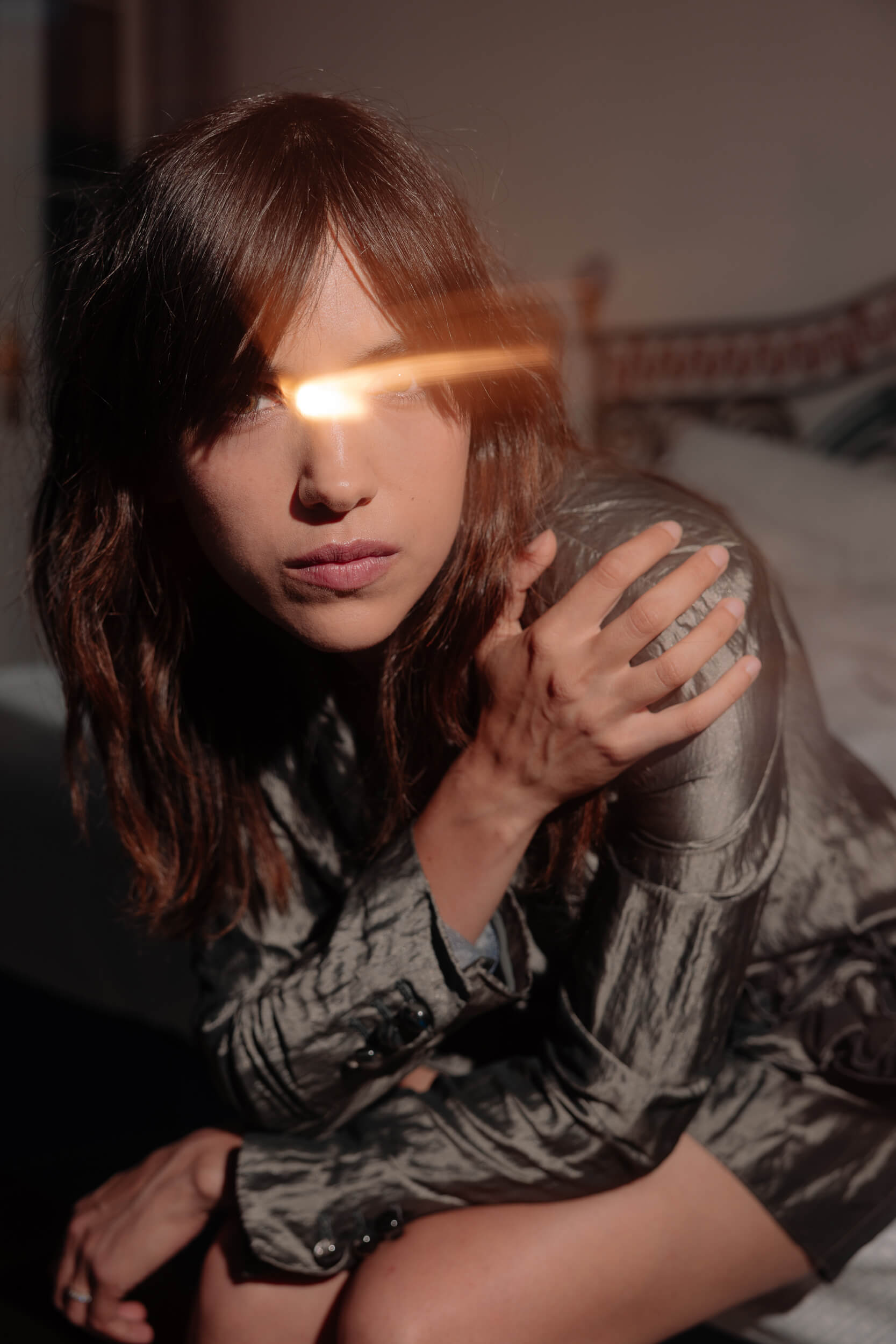
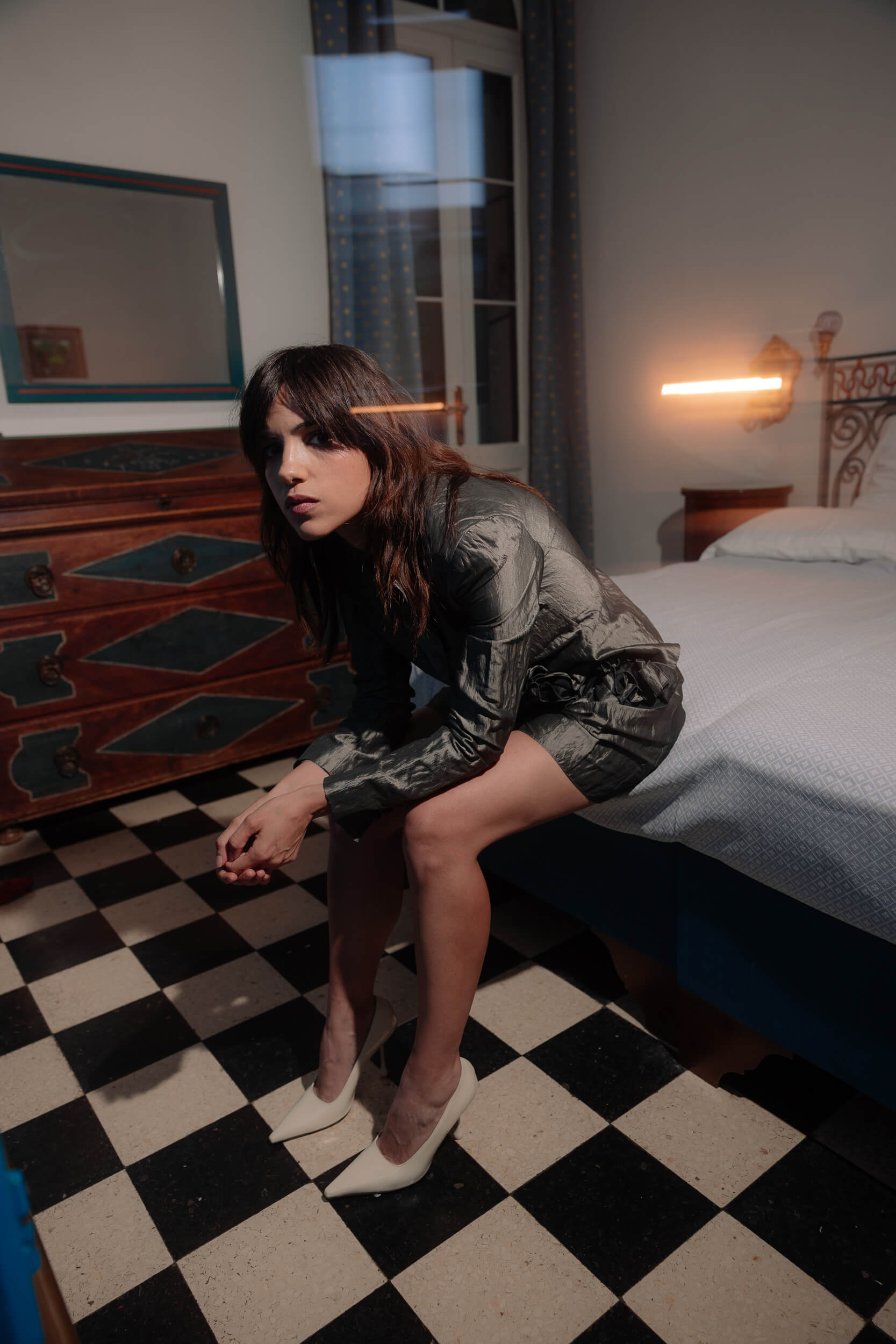
Did you work a lot on the chemistry with Gabriel Montesi (Antonio) and Vinicio Marchioni (Antonio’s father, Giacomo)? Was there a particular moment when you felt that connection marked a change in Angela’s perception?
I had a lot of time to work with Gabriel: we met often before filming, rehearsing to make this love story credible, something Daniele Vicari cared about deeply. We needed to find a connection, a lightness, even some humor, and with Gabriel it was natural: he is a brilliant actor, highly sensitive, and we share a similar approach to work. On set, we were already on the same frequency: just a look was enough to understand the direction, and often that’s where the most beautiful surprises emerged, letting the characters flow.
I remember a scene that was written and prepared in a certain way, but during filming it completely changed because we followed the characters’ instinct. With Vinicio, it was right to maintain some distance, because in the film the relationship between Angela and Giacomo is marked by distrust: we worked on that, yet it took little to enter listening mode, because Vinicio is a generous actor, with whom connection happens immediately.
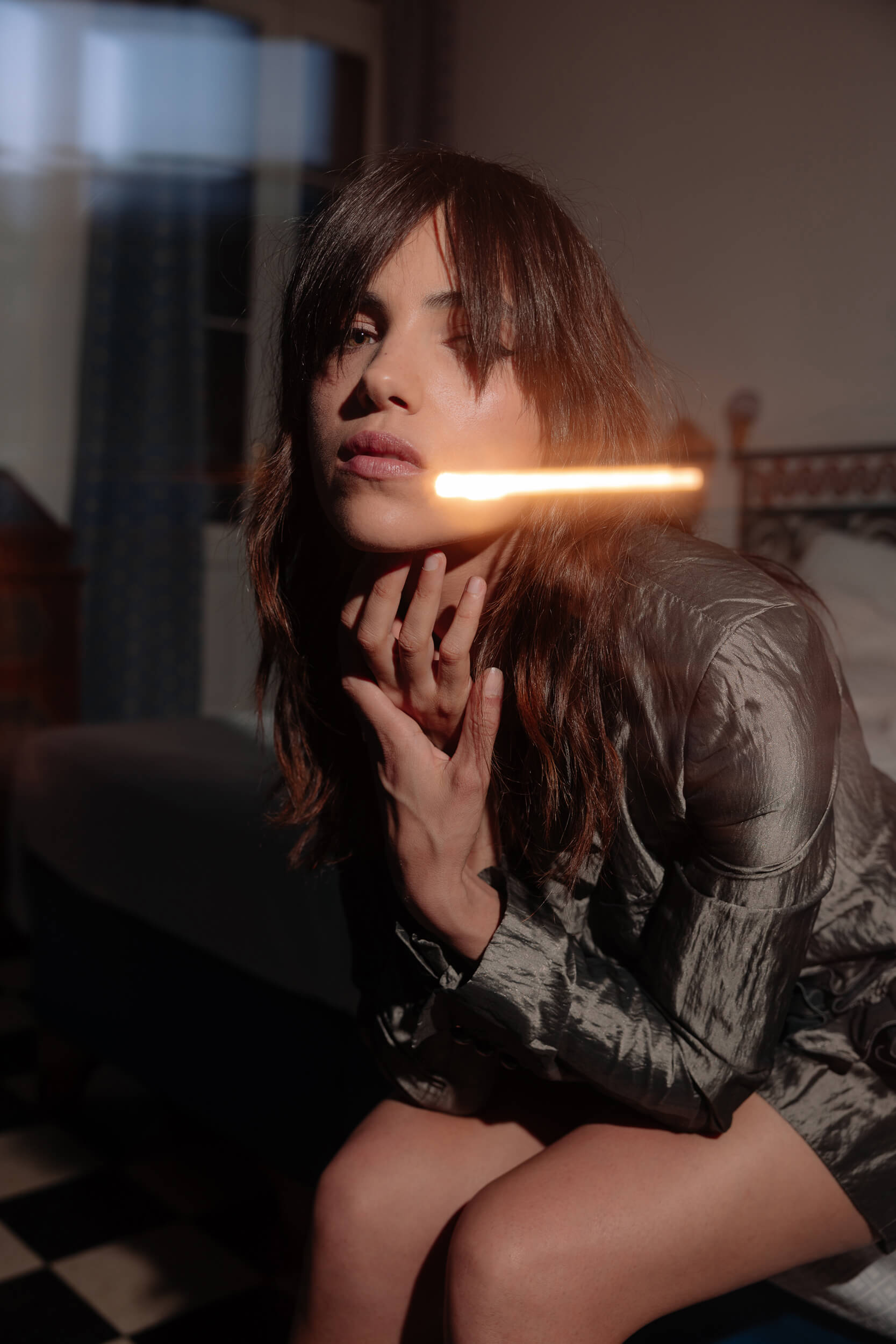
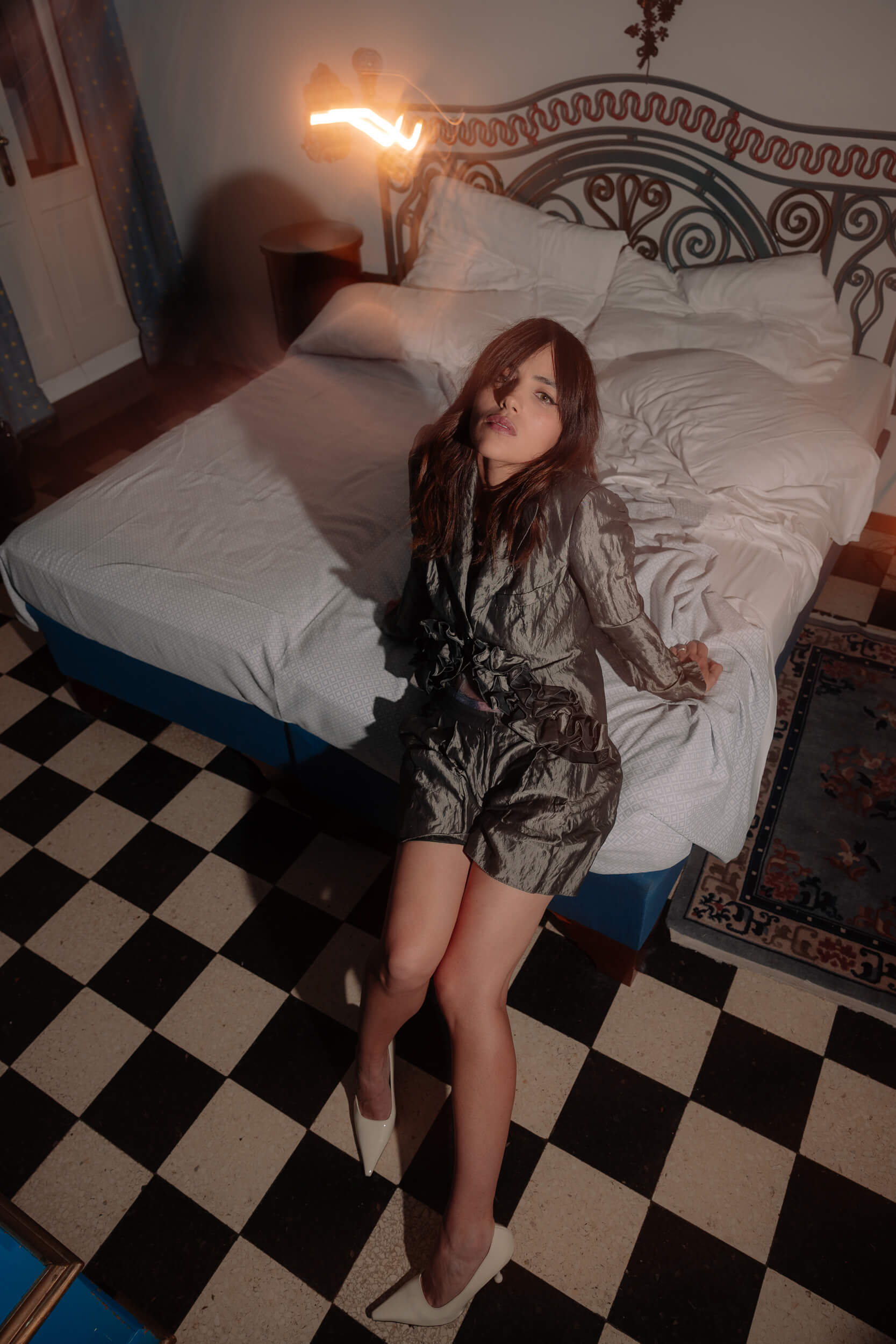
“We needed to find a connection, a lightness, even some humor, and with Gabriel it was natural”
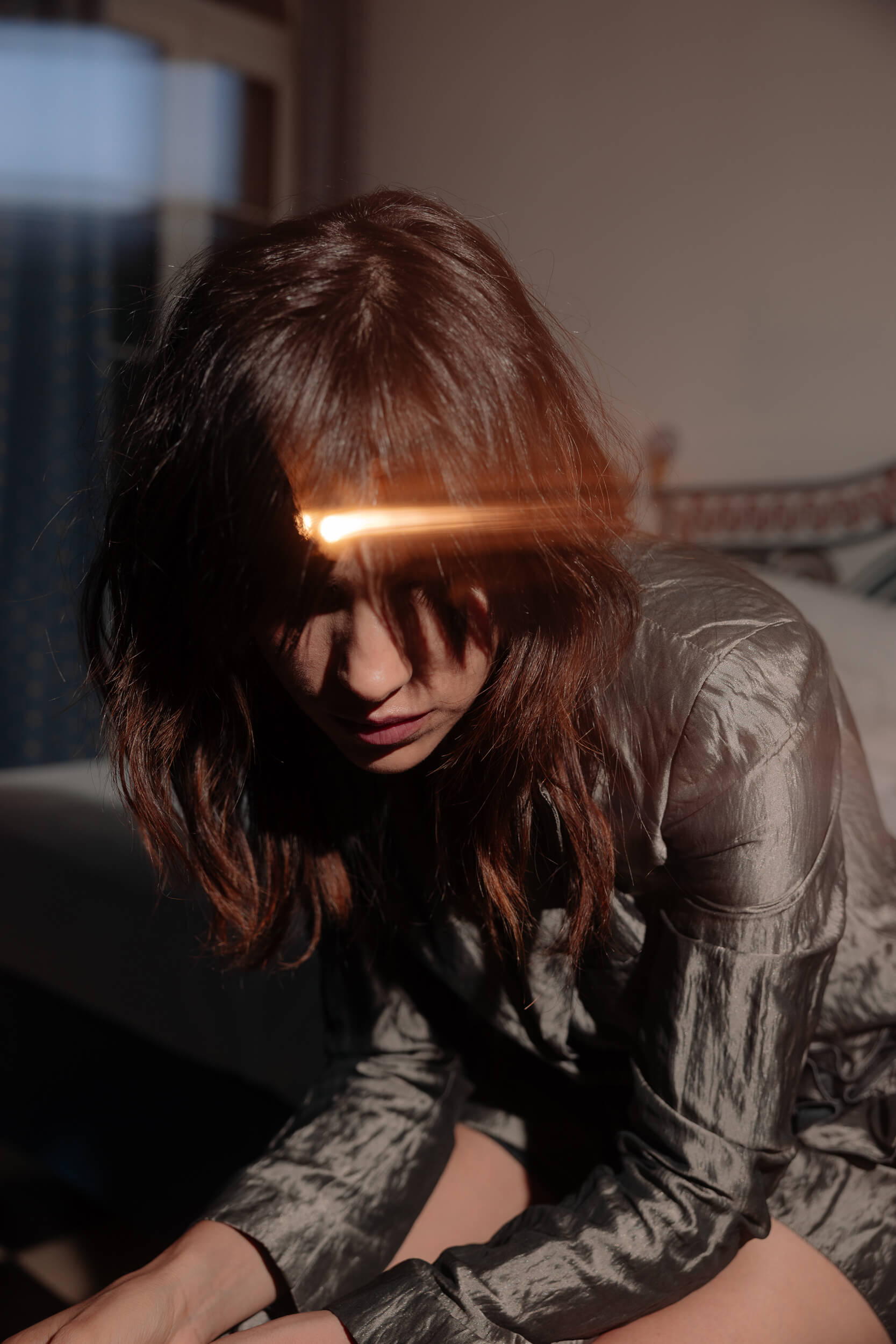
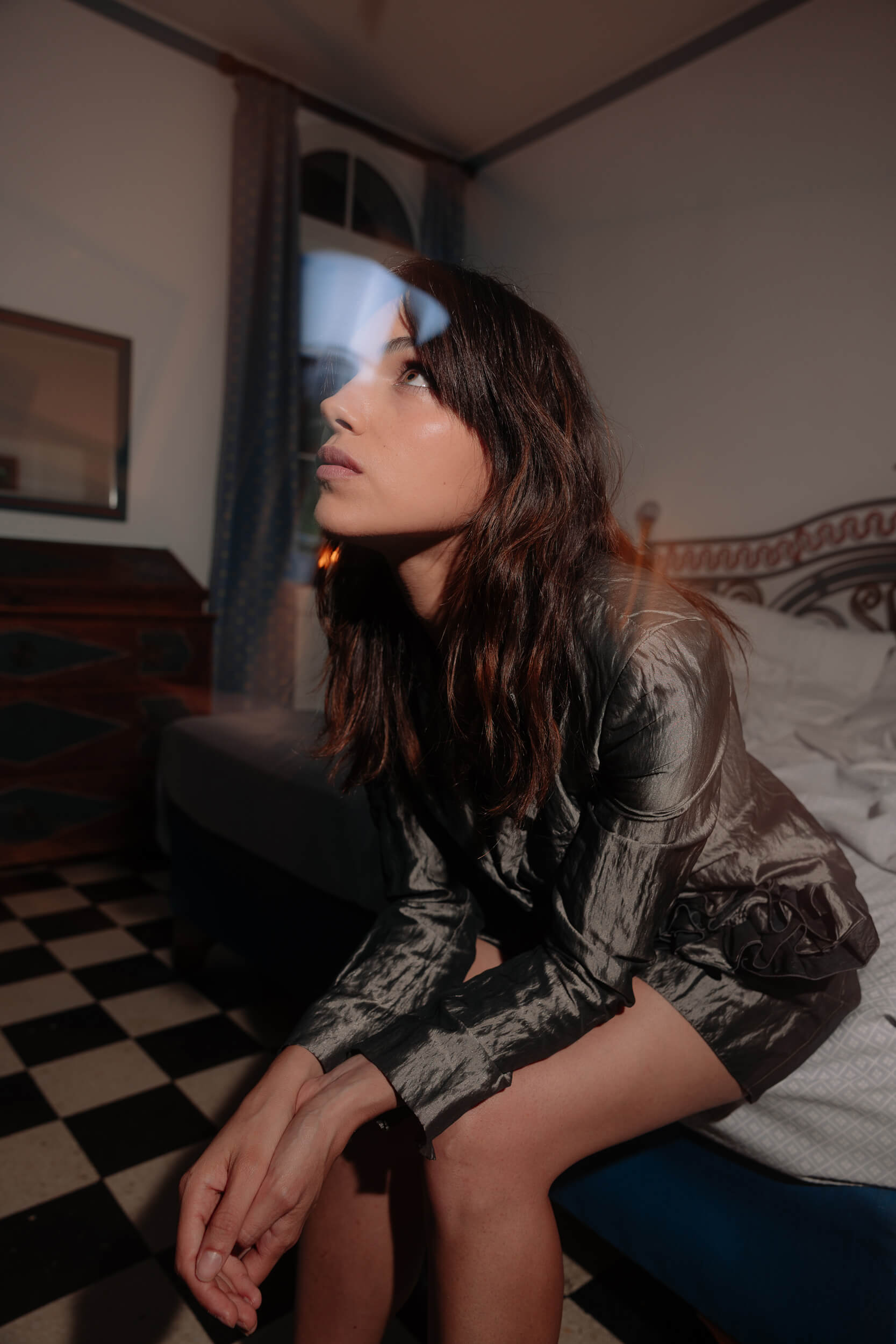
The film is shot between Calabria and Emilia-Romagna, and deals with the ’ndrangheta in the early 1970s: how did you experience the environment of those places and years during filming?
Places sink into you. Those houses, landscapes, and costumes conveyed a sense of reality. Isolating yourself in these locations was important because only by living them can you perceive certain things.
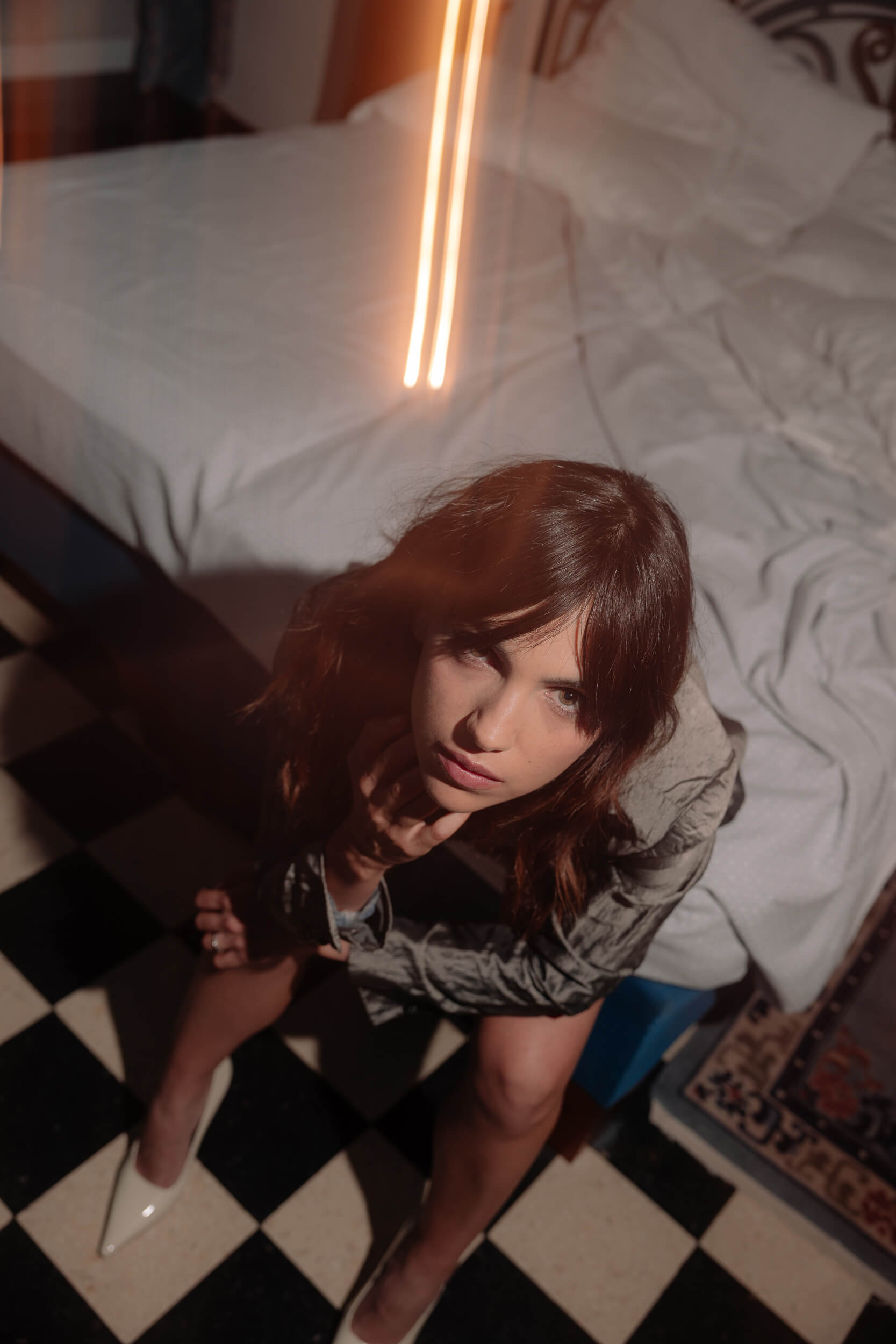
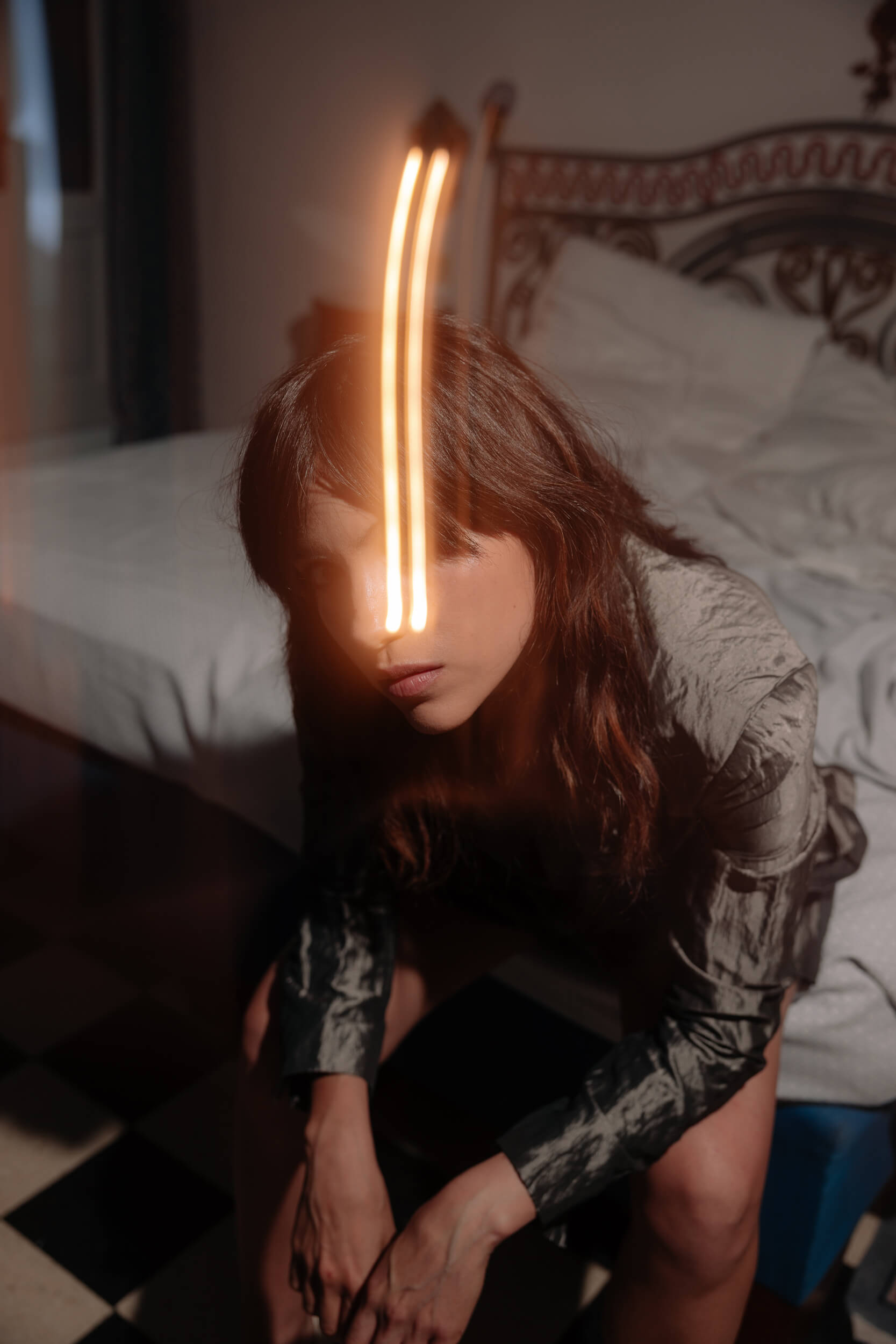
“The idea of wanting to kill someone is ugly” is a line quite representative of your character. What do you hope the audience perceives watching this film, between tragedy, the desire for redemption, and the humor Vicari wants to explore?
That there is never only darkness. Even in the darkest moments, there is a spark that opens a sliver of hope. I want the audience to feel that crack and see in it the possibility of change. It is a film about rebellion and freedom for those who feel out of place.
Is there a scene, detail, or gesture of Angela that represents for you, in the daily life of the character, an act of rebellion or humanity against a predestined fate?
For me, it is the look. Angela does not scream, does not flee, but observes with a lucidity that is already resistance. She has a consciousness of what she wants, shown in her silences, staying close to Antonio, shaking and protecting him.
“…there is never only darkness. Even in the darkest moments, there is a spark that opens a sliver of hope.”
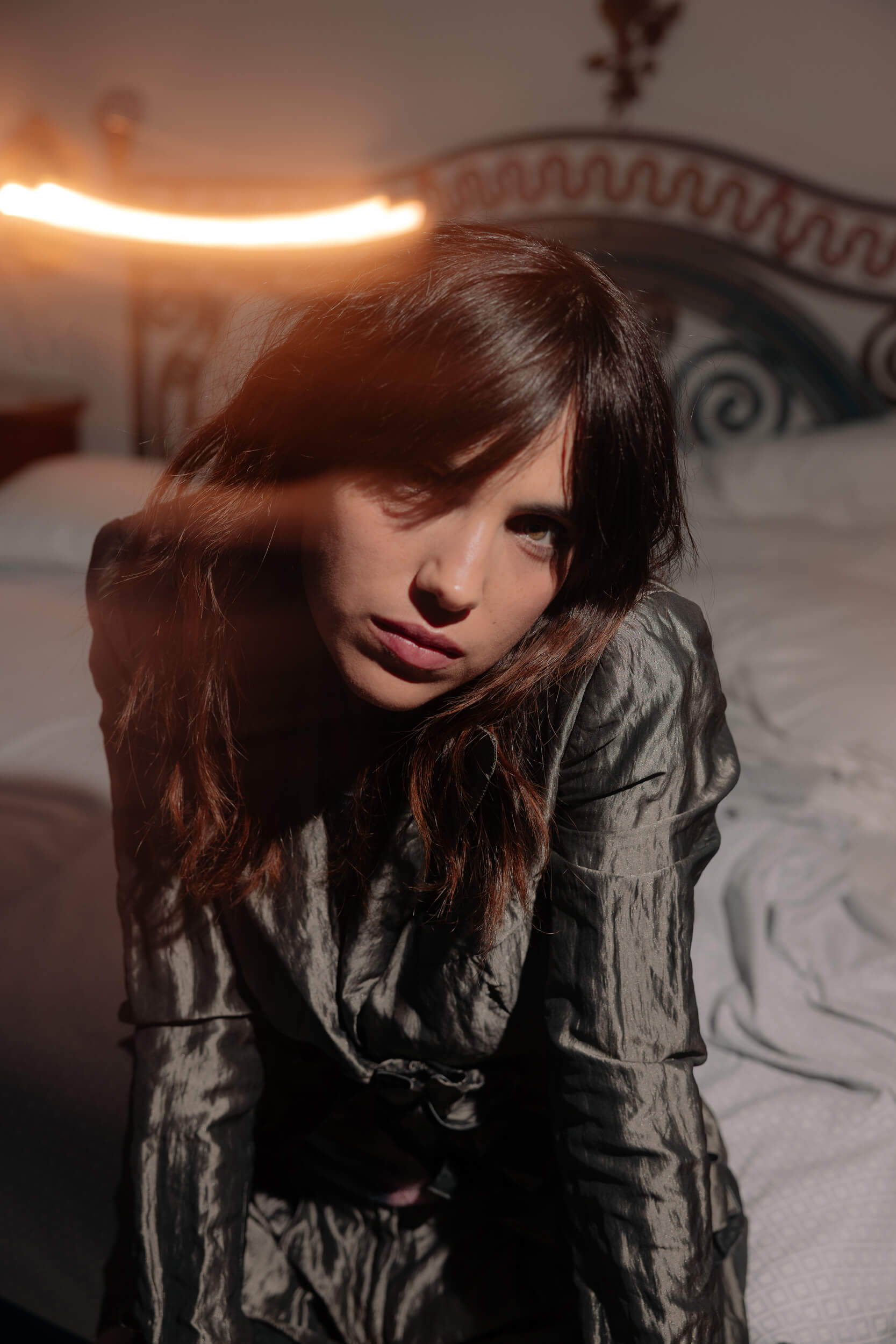
And your biggest act of rebellion?
Choosing to do this profession. Coming from a reality where it was not a given path, I had to go against expectations and fears.
What is your greatest fear?
The fear of no longer having curiosity. Without curiosity, I believe everything stops.
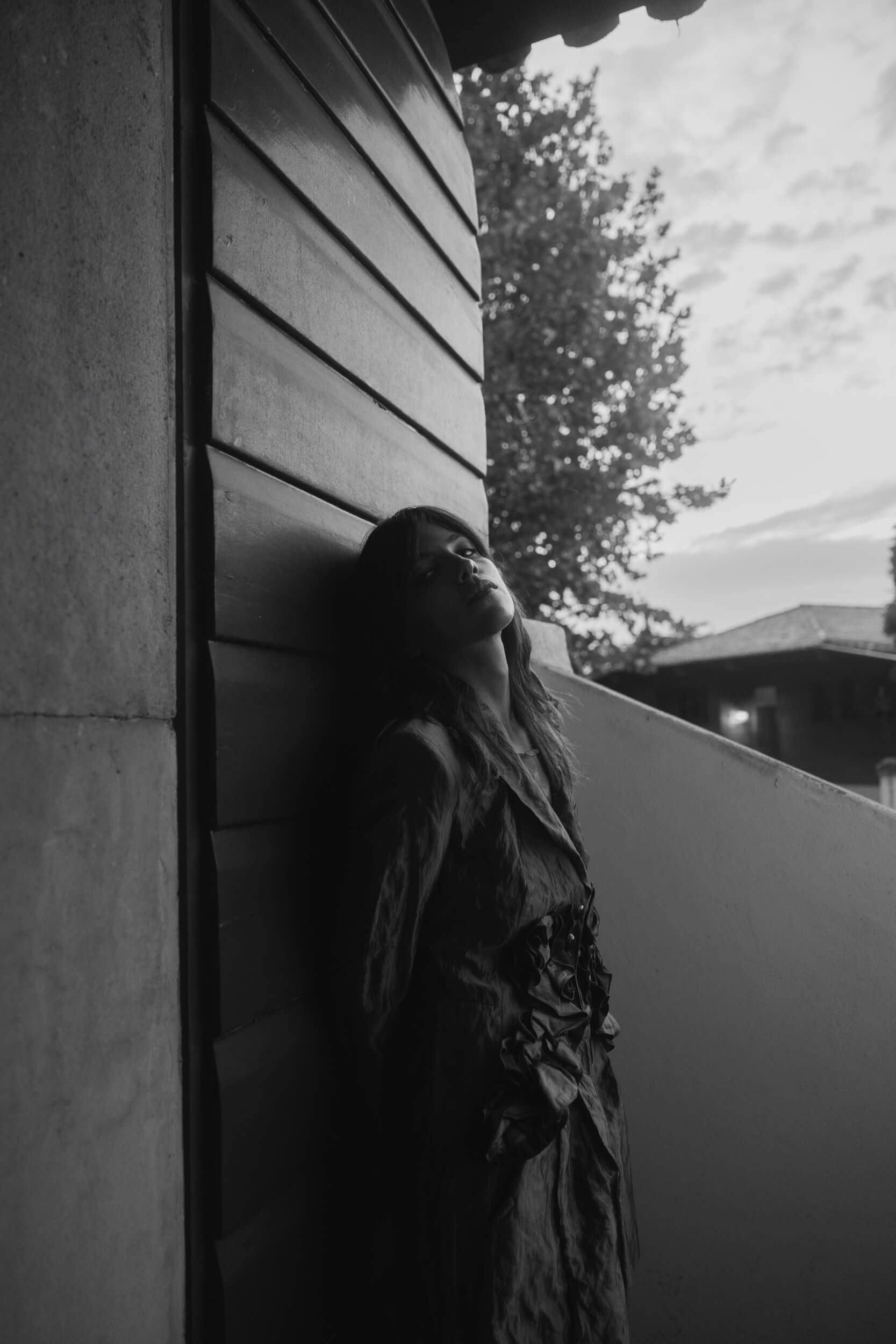
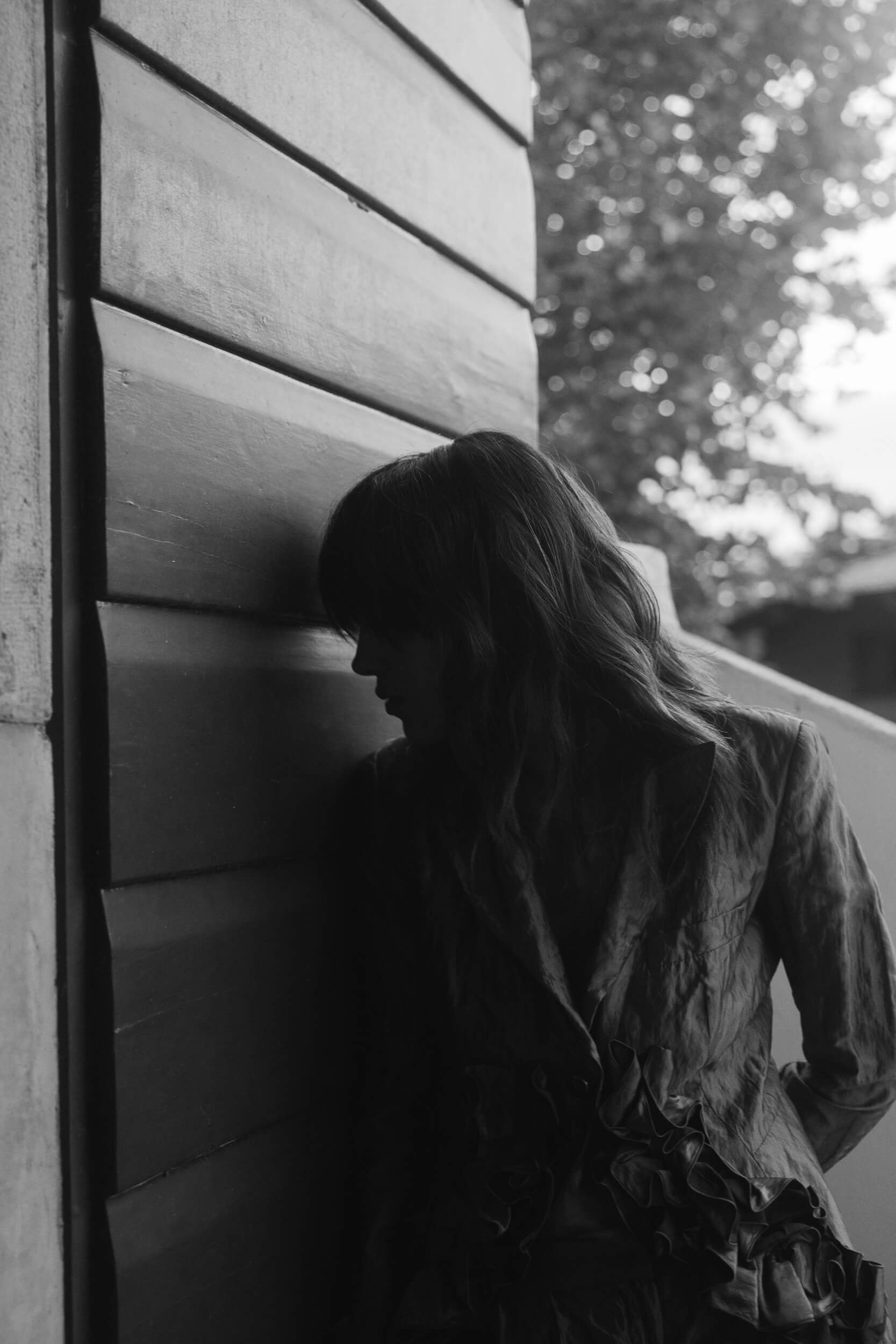
Do you feel more comfortable playing roles close to your sensibility or losing yourself in characters far from you?
It depends. In roles close to me, I find fragments I know, but it is when I play characters far from me that I feel truly challenged. I have the opportunity to get lost, to discover unknown sides. And it is precisely this getting lost that makes everything more alive, because it always enriches me internally. It is like doing therapy through the characters and stories you tell.
The last film or series you watched that particularly struck you?
Recently, during a train trip, I watched Past Lives, which I had missed. It overwhelmed me with its delicacy in telling about time, love, and choices that shape us. It is an intimate, poetic film, able to speak of feelings with rare simplicity.
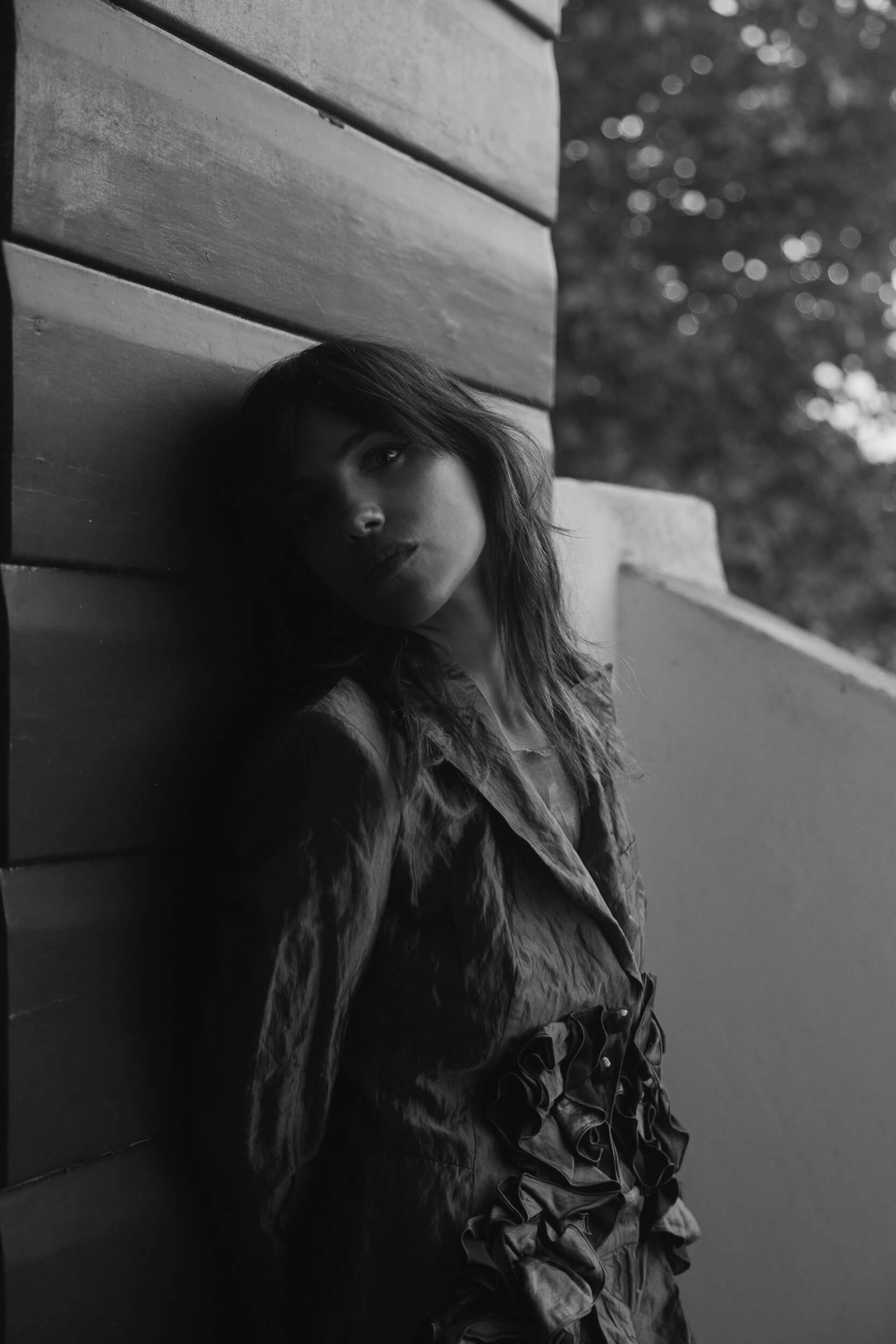
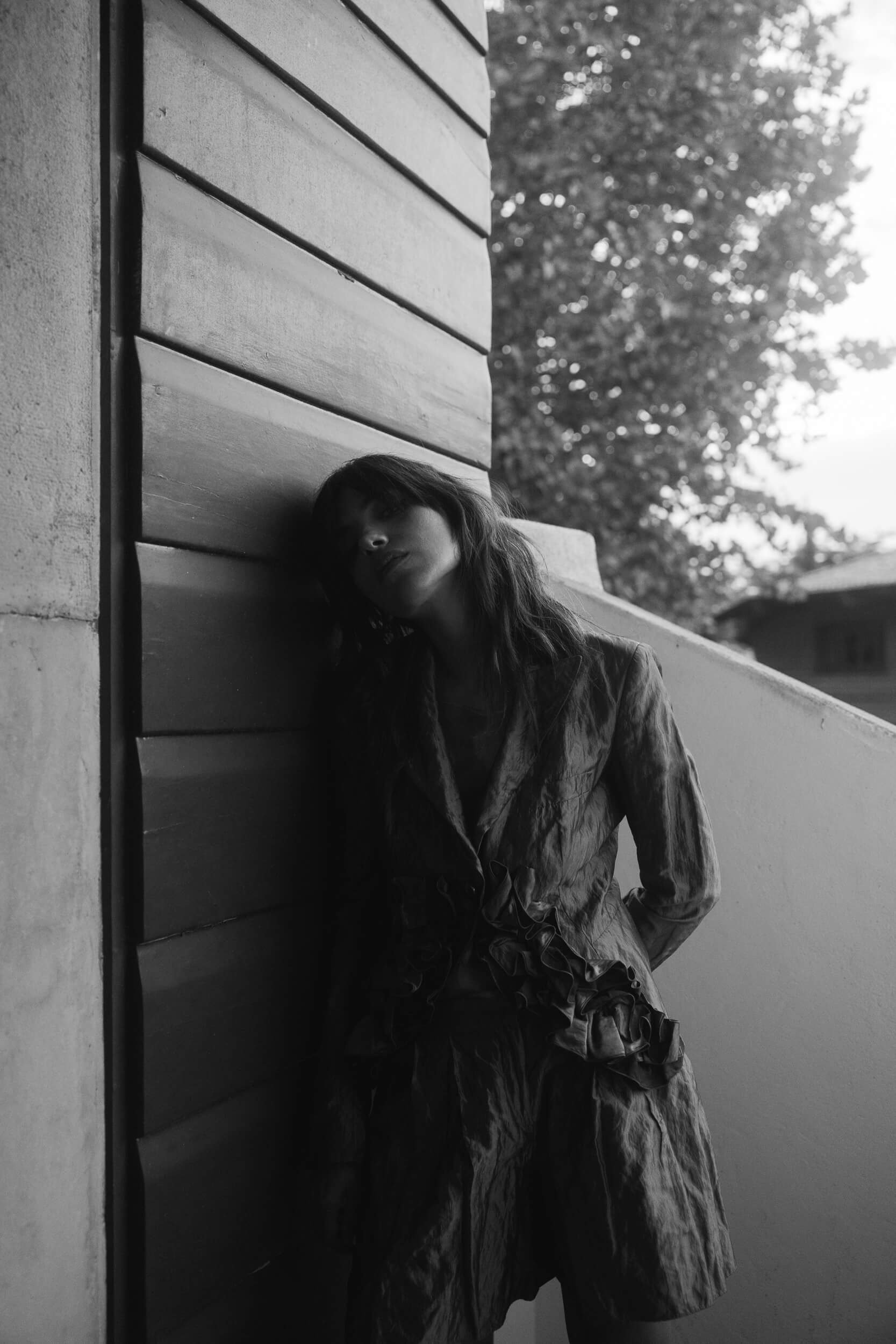
Where do you feel most vulnerable, and how do you turn that vulnerability into strength?
My vulnerability lies in the fear of not being enough. Over time, I realized that fear is also energy, so I transform it into listening, attention, and a desire to go deeper. It is a motor that drives me to never stop.
Acting, in my view, often confronts you with unexplored human sides and helps you better understand yourself. What is the last thing you discovered about yourself thanks to your work?
That I can inhabit spaces I thought did not belong to me. Acting allows you to discover sides of yourself you didn’t know you had, and every time it is like moving an inner boundary. I discovered an inner strength I didn’t think I had. Sometimes, going through complex characters or difficult situations, you realize that inside you there is much more courage and resilience than you imagined.
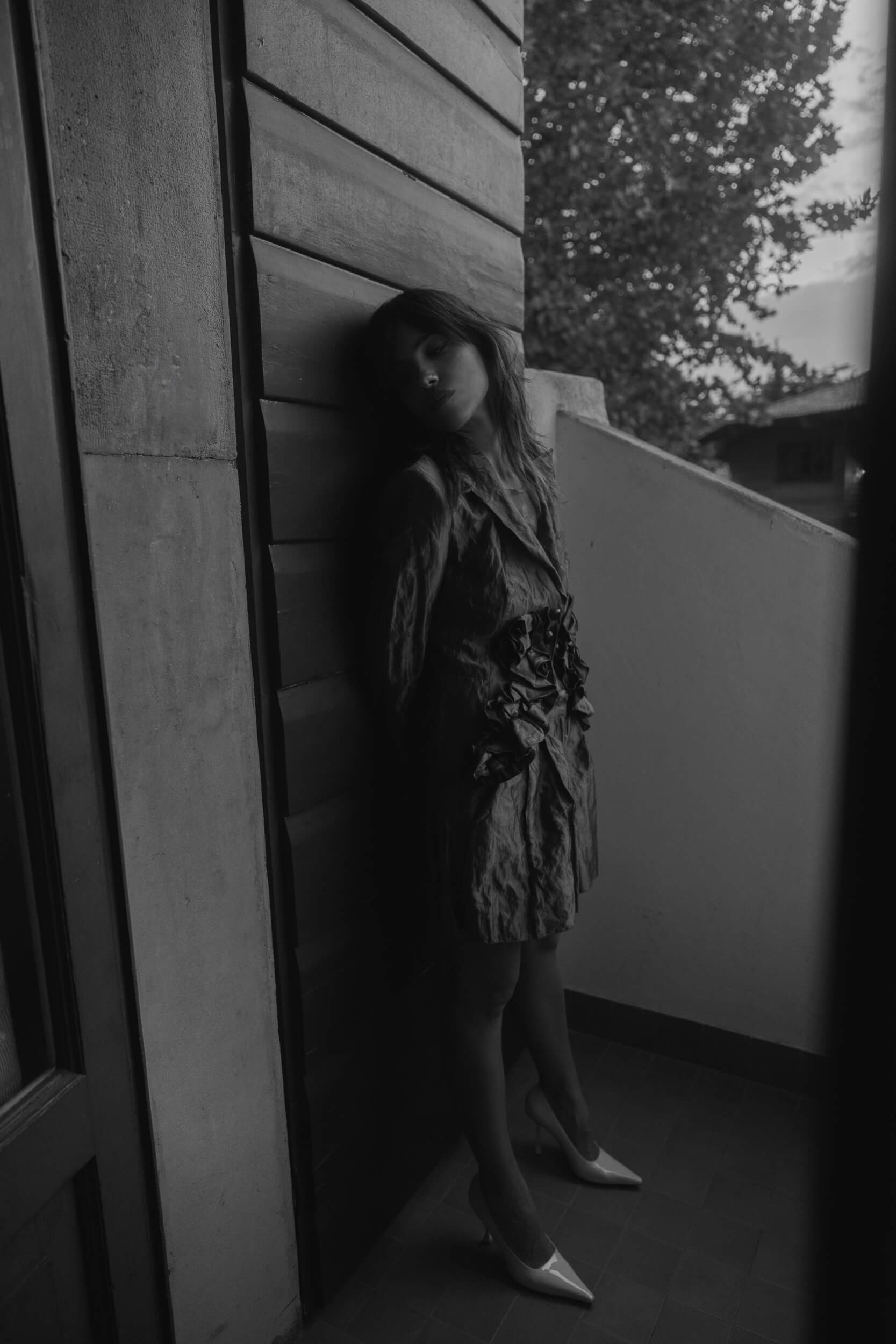
“Acting allows you to discover sides of yourself you didn’t know you had, and every time it is like moving an inner boundary.”
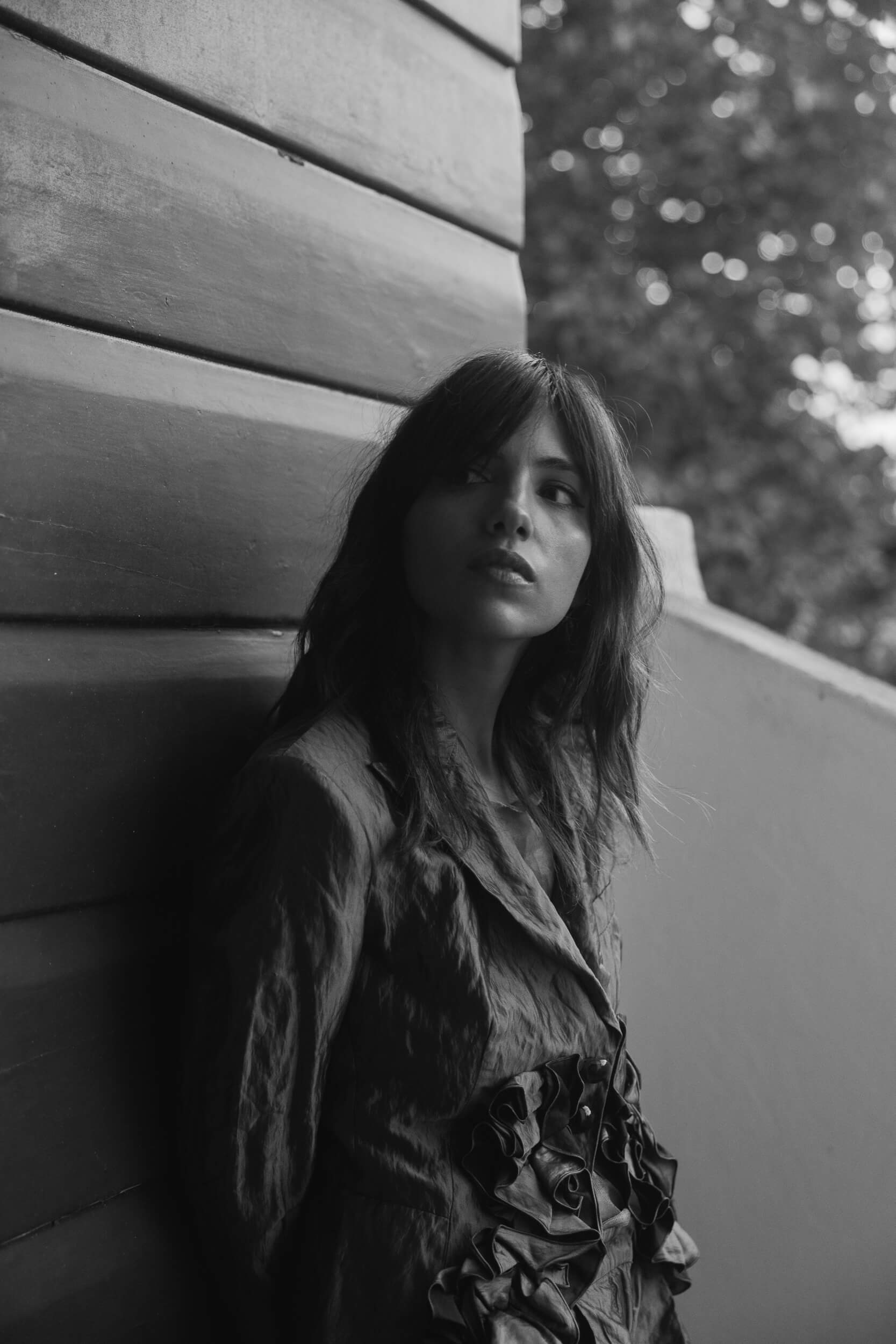
What would you like to look at out of the window now and forever?
I would like to see the sea, because it constantly changes and never tires. Ultimately, it’s what I also seek in life: a moving horizon, capable of surprising me every time.
What does it mean for you to feel comfortable in your own skin?
Feeling comfortable in your own skin means stopping asking permission to be yourself. It means welcoming yourself, without chasing ideals or masks. It is the freedom to inhabit yourself, with your fragilities and strengths.
What is your happy place?
My happy place is the sea, because it gives me breath, and the set, when through the characters I can lose and find myself. They are two different places, but with the same magic: both make me feel free and in the right place.
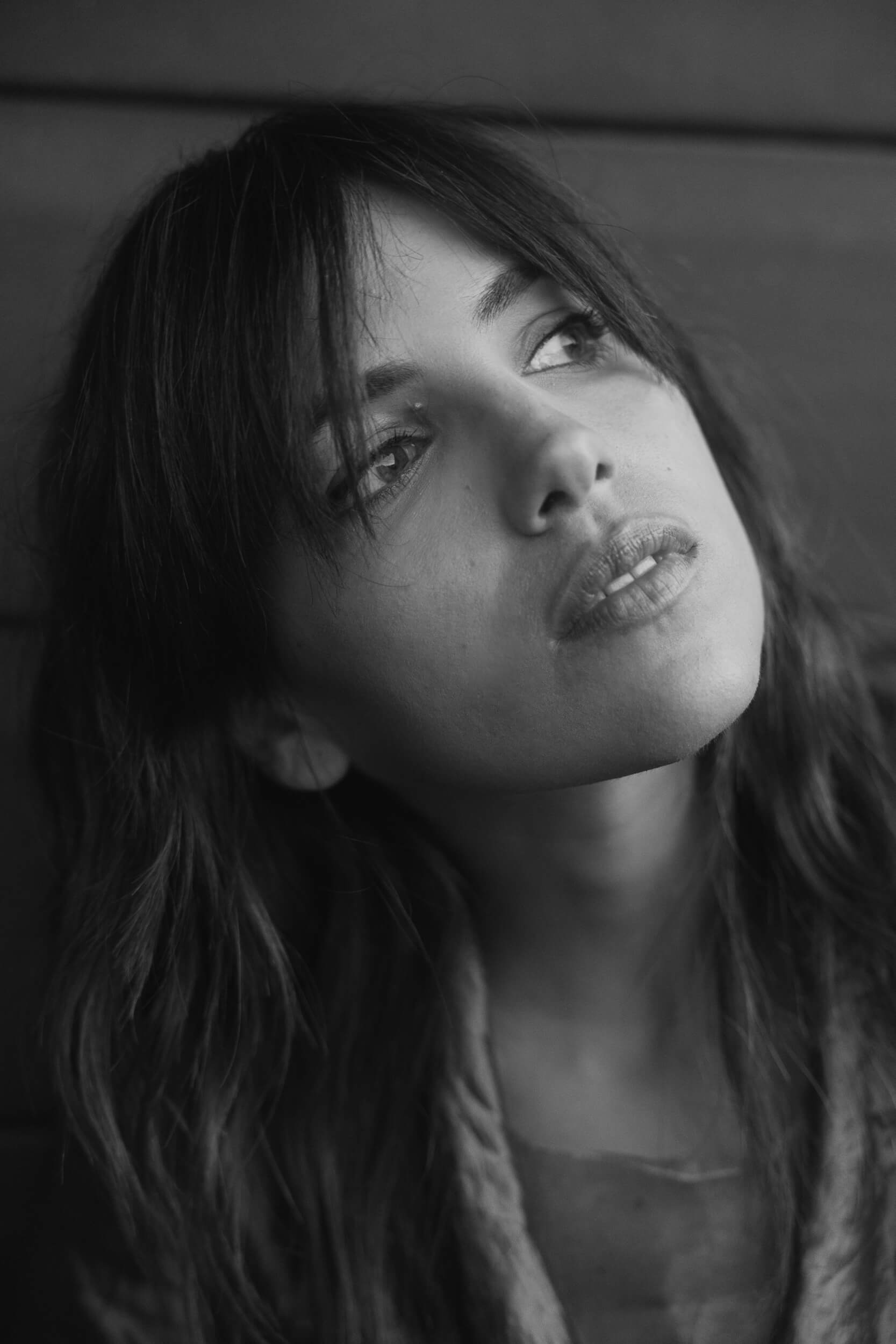
Photos by Johnny Carrano.
Makeup by Giovanni Pirri @ Simone Belli Team.
Hair by Vincenzo Panico.
Styling by Sara Castelli Gattinara.
Total Look: Emporio Armani.
Thanks to Other Srl.

